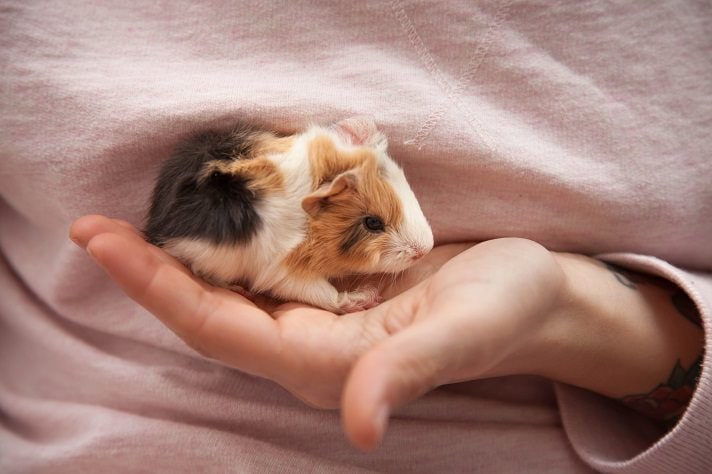
A Comprehensive Guide to Caring for Baby Guinea Pigs
Guinea pigs, also known as cavies, are delightful and affectionate creatures that make wonderful companions. Baby guinea pigs, or pups, require special care and attention to ensure their health and well-being. This comprehensive guide will provide you with all the essential information you need to know about caring for baby guinea pigs, from their nutritional needs to their socialization and medical care.
Nutritional Requirements
Baby guinea pigs have specific nutritional requirements that differ from adult guinea pigs. They require a diet rich in protein, calcium, and vitamin C to support their rapid growth and development.
- Hay: Hay should constitute the majority of a baby guinea pig’s diet. It provides essential fiber for proper digestion and dental health. Choose high-quality grass hays, such as timothy hay or orchard grass hay.
- Pellets: Guinea pig pellets provide concentrated nutrients, including protein, calcium, and vitamin C. Choose pellets specifically formulated for baby guinea pigs, as they have higher levels of these essential nutrients.
- Fresh Vegetables: Fresh vegetables are an important source of vitamins, minerals, and antioxidants. Offer a variety of vegetables, such as romaine lettuce, bell peppers, carrots, and broccoli.
- Water: Fresh, clean water should be available at all times. Use a water bottle with a sipper tube to prevent spills and keep the water clean.
Housing and Environment
Baby guinea pigs require a safe and comfortable environment to thrive.
- Cage: The cage should be spacious enough to accommodate the growing pups. A cage measuring at least 30 inches by 36 inches is recommended for a pair of baby guinea pigs.
- Bedding: Use soft and absorbent bedding, such as fleece or paper-based bedding. Avoid using cedar or pine shavings, as they can irritate the pups’ respiratory systems.
- Hideouts: Provide multiple hideouts for the pups to feel secure and protected. You can use cardboard boxes, tunnels, or igloos.
- Temperature: Baby guinea pigs are sensitive to cold temperatures. Maintain a temperature of around 70-80°F (21-27°C) in their environment.
Socialization and Handling
Guinea pigs are social animals and require regular interaction with their human caregivers.
- Handling: Handle the pups gently and frequently to socialize them. Start by holding them for short periods and gradually increase the duration as they become more comfortable.
- Playtime: Provide supervised playtime outside of the cage to allow the pups to explore and exercise.
- Companionship: Guinea pigs are happiest when they have a companion. If possible, keep at least two pups together.
Health Care
Regular veterinary checkups are essential for monitoring the health of baby guinea pigs.
- Vaccinations: Consult with your veterinarian about appropriate vaccinations for your pups.
- Parasite Prevention: Baby guinea pigs are susceptible to parasites, such as mites and lice. Use appropriate anti-parasitic treatments as recommended by your veterinarian.
- Dental Care: Guinea pigs’ teeth grow continuously, so it’s important to provide them with plenty of hay to chew on. Regular dental checkups may also be necessary.
- Common Health Issues: Common health issues in baby guinea pigs include respiratory infections, diarrhea, and skin problems. Seek veterinary attention promptly if you notice any signs of illness.
Special Considerations
- Orphaned Pups: If you find orphaned baby guinea pigs, contact a wildlife rehabilitator or veterinarian immediately. Orphaned pups require specialized care and feeding.
- Hand-Feeding: If necessary, baby guinea pigs can be hand-fed using a special formula. Consult with your veterinarian for instructions on how to properly hand-feed.
- Weaning: Baby guinea pigs typically start weaning around 3-4 weeks of age. Gradually reduce the amount of formula or milk and increase the amount of solid food until they are fully weaned.
Conclusion
Caring for baby guinea pigs requires patience, attention, and a commitment to their well-being. By following the guidelines outlined in this guide, you can provide your pups with the optimal environment and care they need to thrive and become healthy, happy companions. Remember to consult with your veterinarian regularly for professional advice and guidance on any specific health or care concerns.
